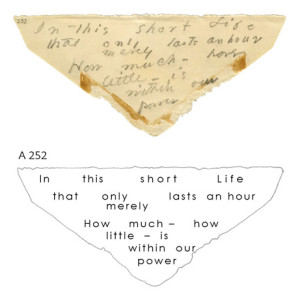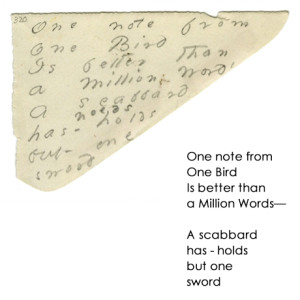After Edward Said
Every empire tells its subjects a story
of revelation. The trees let down
their aging leaves, listless
in late drought. The children thrive on filtration,
their classroom air and their selfies sanitized.
Every empire seems invincible
as its borders submerge, its manicured hillsides
incinerate between guaranteed
next-day deliveries.
Every empire eulogizes
its value system, splurges
for pyrotechnics, decorates
its mausoleums for the holidays.
Every empire turns
against its colonies, cradling
the embassy’s crystal in bubble wrap,
packing extra treats for the dogs on the evacuation flight home.
Every empire promises
a revolution against itself. The children
are tasked with designing the future, growing
walls of hydroponic greens,
rebranding old protest anthems.
Every empire denies the iceberg
it crashes into, hires a chorus, funds the arts.
Every empire sings itself a lullaby.
■
Poet Lena Khalaf Tuffaha includes today’s poem in her 2024 National Book Award winning collection Something About Living. She dedicates the poem “After Edward Said” — for your reference, Edward Said was a Palestinian-American professor of literature at Columbia University who said, “Every empire, however, tells itself and the world that it is unlike all other empires, that its mission is not to plunder and control but to educate and liberate.”
While poetry can be a lullaby, what I find self-evident about this piece is that poetry can also be an antidote to lullabies. I like to think that all the best poems are about memorably awakening the reader to something you may not have noticed or seen from quite a certain angle (or slant as Emily Dickinson would say). Whether about empire or nature or grief or love, I hope every poem I send you this month is awake to something.
Thank you for celebrating poetry month with me!
— Ællen


